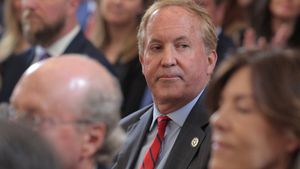Amber Heard has written an op-ed for The Washington Postdiscussing what’s undoubtedly only a fragment of the ramifications she faced for coming forward with abuse allegations against ex-husband Johnny Depp over two years ago.
Heard, who doesn’t actually name Depp in the piece but speaks as “a public figure representing domestic abuse,” says she “felt the full force of our culture’s wrath for women who speak out.”
Death threats forced her to constantly change her phone number, photographers hounded her, and tabloids wove negative stories to go along with whatever photos they wound up getting. (Maybe you’ll remember all the ones about how if she was smiling, ever, clearly she had never been abused?)
“I felt as though I was on trial in the court of public opinion — and my life and livelihood depended on myriad judgments far beyond my control,” she writes.
“Friends and advisers told me I would never again work as an actress — that I would be blacklisted. A movie I was attached to recast my role. I had just shot a two-year campaign as the face of a global fashion brand, and the company dropped me. Questions arose as to whether I would be able to keep my role of Mera in the movies Justice League and Aquaman.”
The loss of jobs and sudden instability of the career she’d spent years building are in line with many of the stories that have sprung from the #MeToo movement, but Heard clearly is interested in more than her personal struggles here.
The op-ed is a plea to not just Hollywood, but America as a whole, to “work together to demand changes to laws and rules and social norms — and to right the imbalances that have shaped our lives.”
From asking Congress to reauthorize the Violence Against Women Act to stopping Betsy DeVos from making changes to Title IX that will make it even more difficult for campus sexual assault to be investigated, Heard is passionate with her call for change.
And she understands, perhaps better than most, why we’ve have such a hard time getting there.
“Imagine a powerful man as a ship, like the Titanic. That ship is a huge enterprise. When it strikes an iceberg, there are a lot of people on board desperate to patch up holes — not because they believe in or even care about the ship, but because their own fates depend on the enterprise.”
































































































































